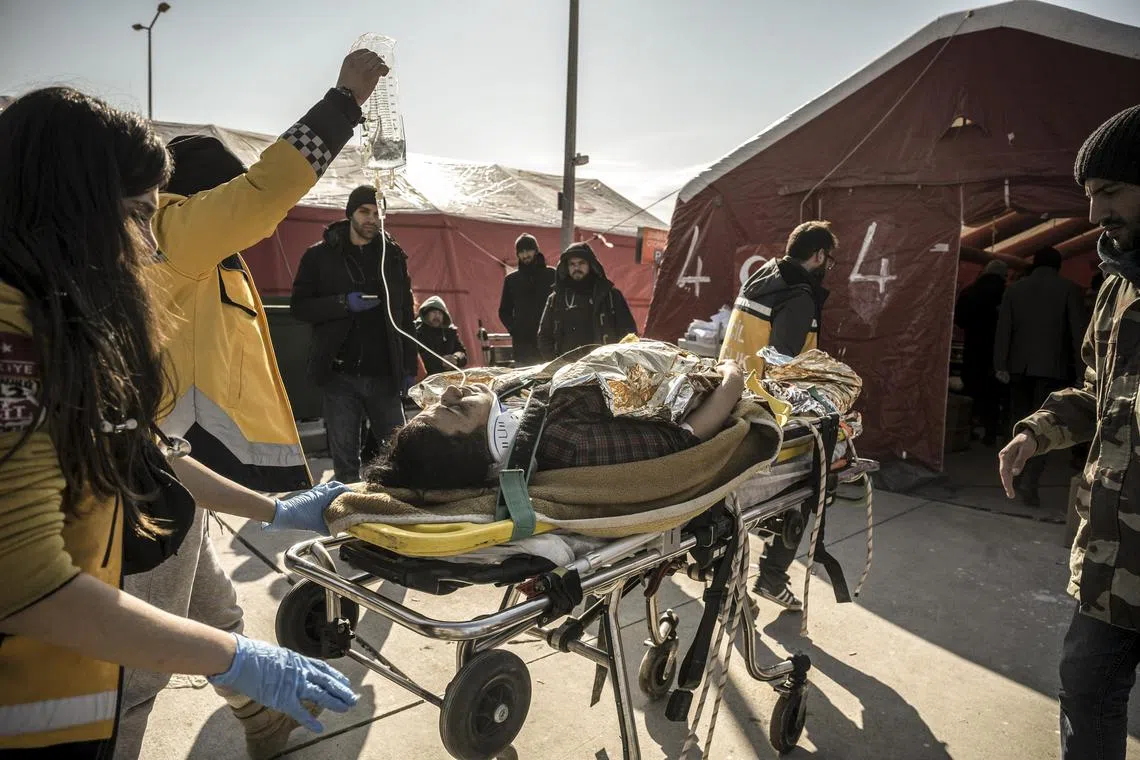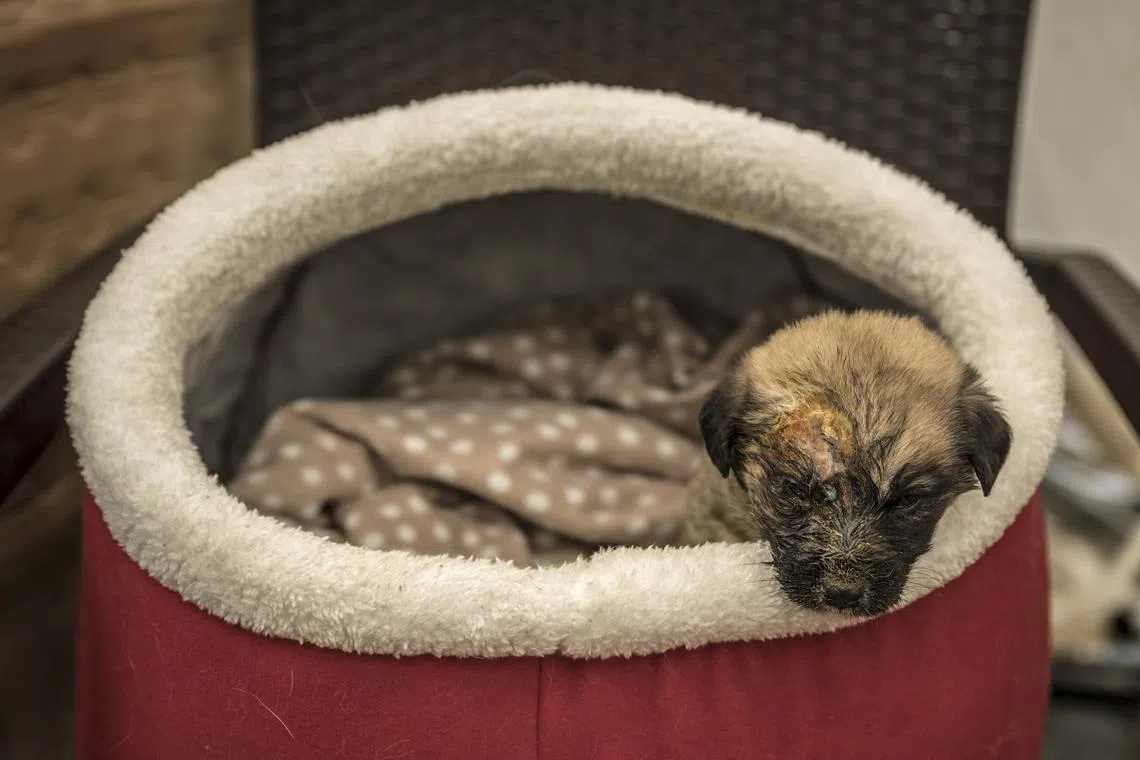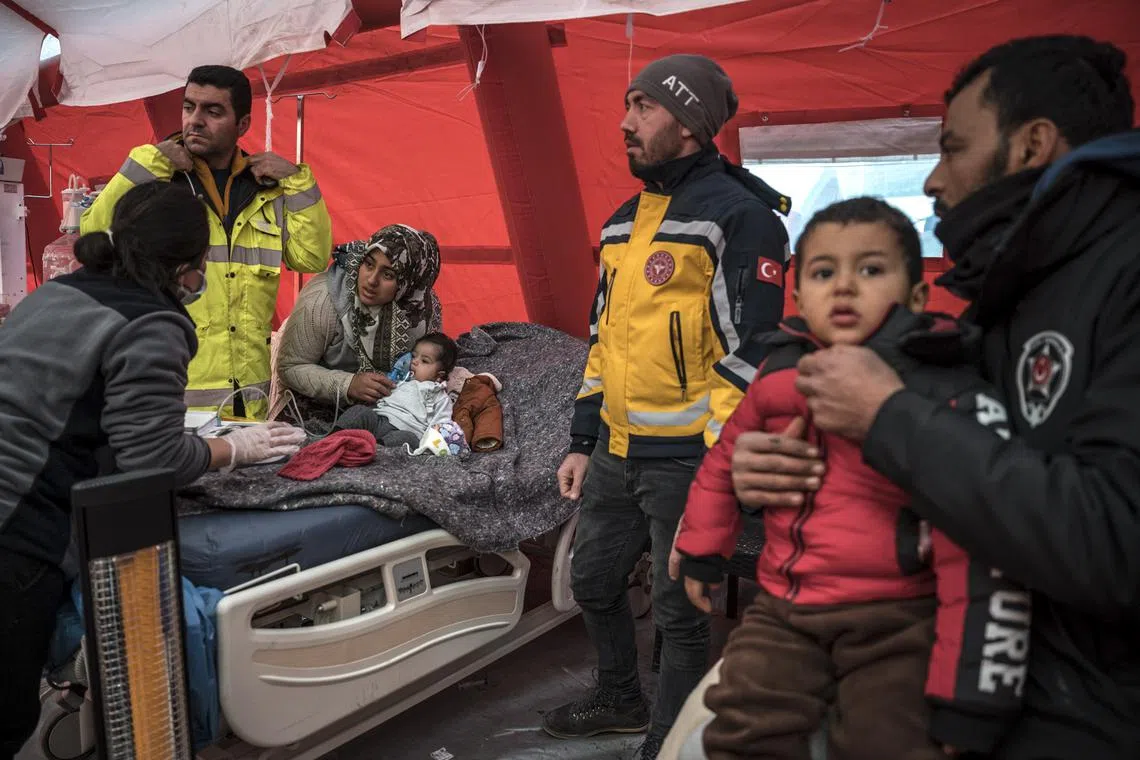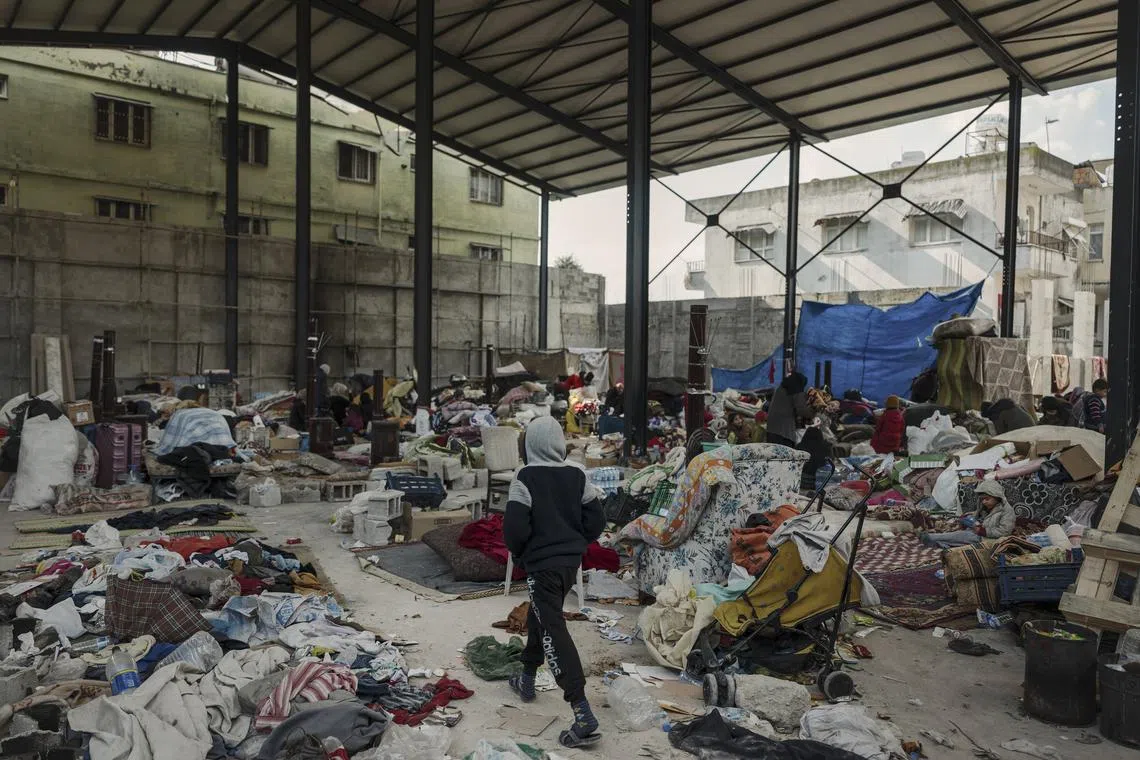Volunteers piece together makeshift medical system in Turkey earthquake zone
Sign up now: Get ST's newsletters delivered to your inbox

The makeshift hospitals – a series of red tents – are manned by local and international medical personnel.
PHOTO: NYTIMES
ANTAKYA, Turkey – An ambulance pulls up to the cluster of red tents that now serves as the main hospital in the ruined city of Antakya, Turkey, on Friday morning.
It is bringing in a woman pulled from the wreckage of her home after nearly 100 hours under the rubble.
Although one of her legs is fractured and she has been hit in the head by a falling concrete block, she is conscious and able to speak.
She wants to know where her two children are. But they have not yet been found.
For the doctors in the field hospital, hastily constructed in a carpark, miracles have grown nearly routine, but there are never enough of them.
As the days pass and more dead than living people are retrieved from the rubble, they grow rarer and rarer.
At the field hospital, 200 patients are no longer arriving every hour as they did on Monday and Tuesday.
Yet people continue to be tugged from the debris, requiring treatment for crushed limbs, dehydration and exposure, which often means amputation.
For many pregnant women, it means going into trauma-induced early labour.
“If I told you what I have been through, what I have seen these last five days, maybe the movies would not seem that dramatic by comparison,” said Ms Halil Kabadayi, 25, a nurse in a red tent functioning as a maternity ward. She had dropped everything to come from the city of Izmir, Turkey, to volunteer.
Given the extent of the destruction, the fact that Antakya has established a semi-functioning medical system is remarkable.
Monday’s earthquake
But since then, a new, makeshift healthcare system has been constructed amid the devastation by volunteers from around Turkey and the world.
While the most severely wounded were taken to undamaged hospitals in other provinces for treatment, field hospitals in the heart of the earthquake zone sprung up to stabilise the newly rescued, treat more minor injuries and manage the diseases that are flaring in the disaster’s wake.
Even pets rescued from the rubble were receiving volunteer medical care at a pop-up animal hospital in Antakya.

A wounded puppy at a field hospital in Antakya.
PHOTO: NYTIMES
“Our work has just begun,” said Dr Ferit Kilic, 38, an emergency room doctor at a government hospital in Istanbul who volunteered to help on Monday.
“We have been here for five days with no shower, no toilet. But these are not important. Each life we save is important for us.”
One medical student hitch-hiked some 600km to the disaster zone as soon as he heard about the earthquake, while Dr Kilic flew in from Istanbul on a plane full of volunteer doctors and nurses.
A veterinarian and her boyfriend drove in from Ankara intending to help humans, only for her to end up treating pets.
An Indian maxillofacial surgeon and the rest of his army medical team set off for Turkey, one of multiple medical groups from around the world that would show up to help. “I just heard the news and thought, I can’t stay at home,” said Mr Mumtaz Buyukkoken, 27, a medical intern from the Turkish city of Konya.
He said he has spent the days since the earthquake helping to set up a makeshift hospital in a school in the coastal city of Iskenderun, where one of two hospitals was knocked out of commission.
The emergency touched the lives of many medical professionals from the region, too, often preventing them from helping.

A child receiving treatment at a field hospital in Antakya on Friday.
PHOTO: NYTIMES
In Pazarcik, near the epicentre of the earthquake, only five or six of the 13 members of an ambulance crew – one of just two in the town – were able to work after Monday, said one ambulance worker who had lost many relatives.
The rest had to bury family members or find new places to live.
“I could not get back to work,” said Mr Emre Tokgozlu, the ambulance worker. “I am only dealing with my own family since the quake.”
All week, the soundtrack of Antakya and other hard-hit cities has been the din of crisis. Helicopters carrying aid have become so commonplace people hardly look up.

An aid distribution site in Antakya.
PHOTO: NYTIMES
In the absence of electricity, thrumming generators power floodlights for the search and rescue teams. Ambulance sirens scream on and on, raging against traffic so impenetrable that it always takes a minute for drivers to let them through.
Yet every so often, silence falls across a street.
The search and rescue teams call for everyone to hush, and cars turn their engines off while the searchers listen for voices under the rubble.
The sirens are a reminder that there are still people with heartbeats under the concrete. Increasingly, however, there are no voices, and the searchers find only bodies. NYTIMES


